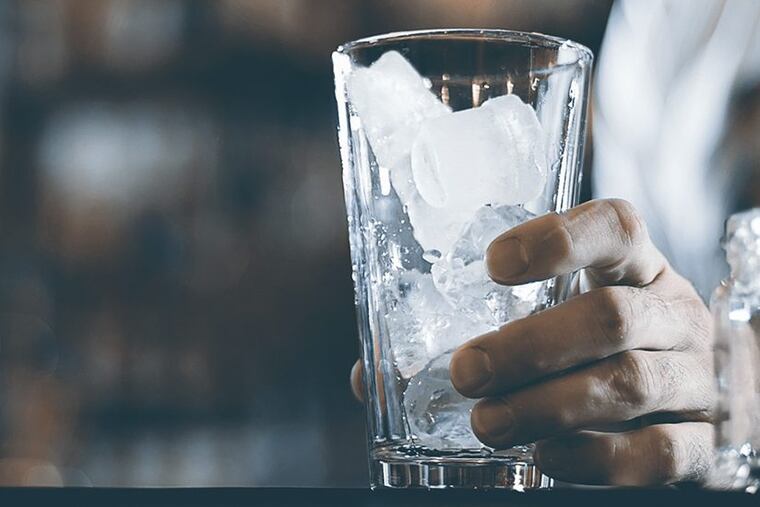Bacteria in ice cubes: a risk on the holidays?
Ice in restaurants may contain bacteria, but homemade ice is not microbe-free, either.

Regular readers of the Inquirer's "Clean Plates" series know that restaurant ice machines may contain unpleasant surprises, such as bacteria, slime, or unidentified "black residue."
But as revelers prepare to entertain guests this holiday season, a new study finds that ice cubes made in the home also are not microbe-free.
Researchers analyzed 60 samples of ice cubes in three environments: homes, restaurants, and industrial facilities that produce those huge bags of ice cubes. They identified bacteria in all three, though the samples from industrial facilities were cleaner, on average.
Do these microbes, representing 52 strains from 31 species of bacteria, pose a significant health threat?
Probably not, said Jennifer Quinlan, an associate professor in the Drexel University department of nutrition sciences, who was not involved with the research.
Generally speaking, the amounts and types of bacteria found in the ice samples were similar to what are found in the air and tap water, she said after reviewing the results, which were published by a group of Italian microbiologists in the Annals of Microbiology.
The only type of bacteria that concerned Quinlan somewhat was Staphylococcus, which she said could have come from someone's unwashed hands.
"The bottom line for consumers is, you've got to realize that ice isn't sterile," said Quinlan, a food microbiologist. "Just because ice is cold doesn't make it safe."
So follow the same common-sense advice that would apply to any type of food preparation. Wash hands. And don't put ice in a drink if it came from a cooler or a seafood tray, she said.
The authors of the study also reported that the levels of bacteria in ice can be reduced simply by adding a drink.
Carbonated beverages and those containing alcohol were effective at killing bugs, said the authors, whose work was financed by the National Institute of Food Ice, in Rome. Whiskey in particular packed an effective anti-microbial punch.
But remember that alcohol itself poses a health threat, especially when combined with driving. Holidays are associated with a increased rate of motor vehicle fatalities, with a higher-than-usual percentage of those crashes involving alcohol, the Insurance Institute for Highway Safety says.
So maybe try that drink without ice, and find a designated driver. Or don't drink at all.